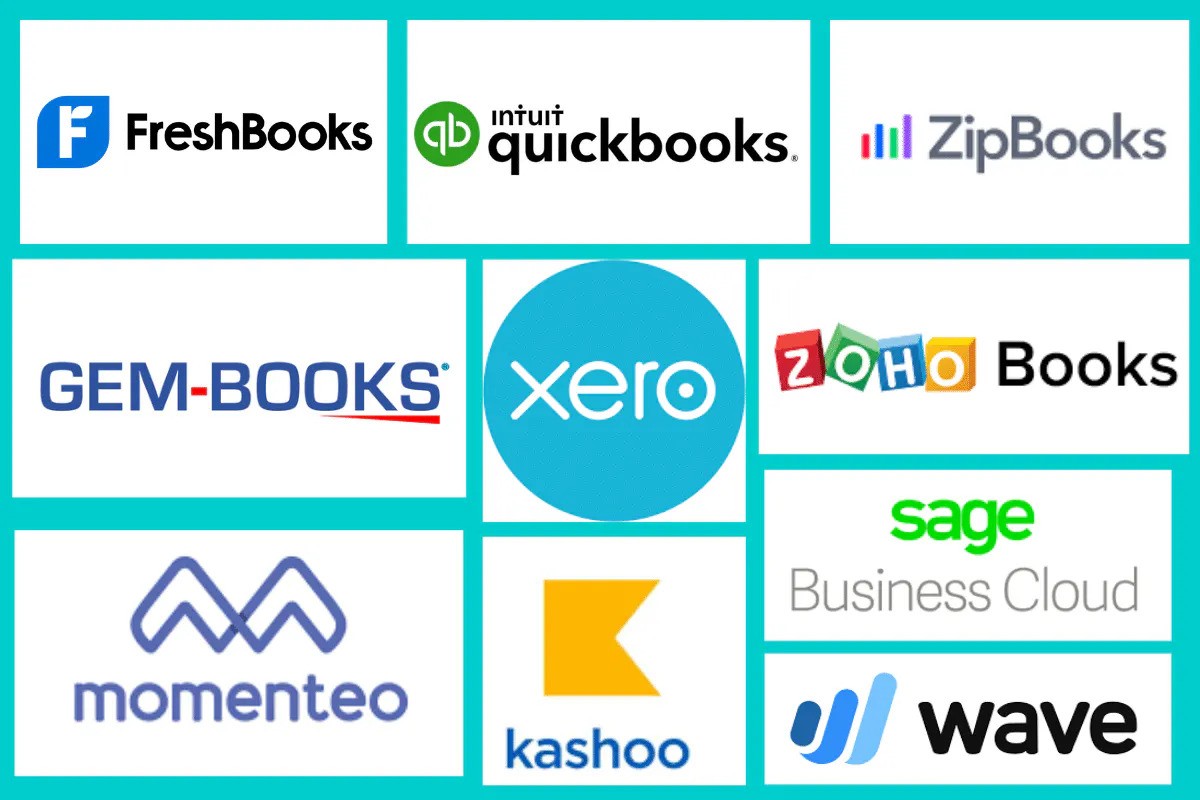Top 8 Accounting Software: Streamlining Financial Management

In the ever-evolving digital landscape, accounting software has become an indispensable tool for businesses. As we approach 2024, the demand for efficient and user-friendly accounting solutions continues to soar. These software platforms not only streamline financial operations but also offer valuable insights. Moreover, they drive informed decision-making and overall business growth.
This comprehensive guide explores the top 8 accounting software in 2024. Additionally, it highlights their key features, strengths, and potential drawbacks. Whether you’re a small business owner or an enterprise-level organization, this guide will assist you in navigating the accounting software landscape.
1. QuickBooks Online
QuickBooks Online, developed by Intuit, remains a frontrunner in the accounting software market. Known for its user-friendly interface and robust features, this cloud-based solution caters to businesses of all sizes. Some noteworthy features of QuickBooks Online include:
- Seamless bank and credit card integration for automated transaction tracking
- Comprehensive invoicing and payment processing capabilities
- Robust reporting and financial statement generation
- Payroll management and tax compliance support
- Extensive third-party app integration for added functionality
With its intuitive dashboard and real-time data access, QuickBooks Online empowers businesses. Additionally, it enables them to manage their finances efficiently from anywhere, anytime.
2. Xero
Xero, a cloud-based accounting software, has gained significant traction in recent years. Offering a comprehensive suite of features, Xero aims to simplify financial management for small and medium-sized businesses. Some key highlights of Xero include:
- User-friendly interface and seamless navigation
- Automated bank feed and transaction categorization
- Robust invoicing, expense tracking, and inventory management
- Comprehensive reporting and forecasting capabilities
- Multi-currency support for international businesses
Xero’s commitment to continuous innovation and seamless integration with over 800 apps makes it a powerful solution. Furthermore, it caters to diverse business needs, ensuring a streamlined financial experience.
3. FreshBooks
FreshBooks, a cloud-based accounting software designed specifically for small businesses and freelancers, has gained popularity. With its modern and intuitive interface, FreshBooks simplifies accounting tasks. Some notable features of FreshBooks include:
- Effortless invoicing and expense tracking
- Time tracking and project management capabilities
- Automated late payment reminders and recurring invoicing
- Comprehensive reporting and financial insights
- Integration with popular payment gateways and third-party apps
FreshBooks’ focus on simplicity and automation streamlines billing and accounting processes. Additionally, it enables small business owners to save time and enhance productivity.
4. Sage Business Cloud Accounting
Sage Business Cloud Accounting, formerly known as Sage One, is a comprehensive accounting solution. It caters to small and medium-sized businesses across various industries. Some key features of Sage Business Cloud Accounting include:
- Robust invoicing, expense management, and financial reporting
- Comprehensive inventory management and stock control
- Payroll processing and tax compliance support
- Multi-currency and multi-company capabilities
- Integration with Microsoft Office 365 and other Sage products
Sage Business Cloud Accounting offers a scalable and customizable solution. Moreover, it addresses the evolving needs of growing businesses, ensuring a seamless transition as companies expand.
5. Wave Accounting
Wave Accounting, a free cloud-based accounting software, has gained popularity among small businesses and entrepreneurs. While offering a basic accounting solution at no cost, Wave Accounting provides essential features such as:
- Invoicing, expense tracking, and bank reconciliation
- Unlimited income and expense tracking
- Basic reporting and financial statement generation
- Payroll and payment processing (paid add-ons)
- Limited integration with third-party apps
Wave Accounting’s free offering makes it an attractive option for startups and micro-businesses. However, businesses with more complex accounting needs may require additional paid features or a more robust solution.
6. Zoho Books
Zoho Books, part of the Zoho suite of business applications, is a cloud-based accounting software. It offers a comprehensive set of features tailored for small and medium-sized businesses. Some key highlights of Zoho Books include:
- Seamless invoicing, expense tracking, and bank reconciliation
- Project and time tracking capabilities
- Inventory management and purchase order processing
- Robust reporting and analytics
- Integration with other Zoho apps and third-party tools
Zoho Books’ strength lies in its seamless integration with other Zoho applications. Additionally, it offers a centralized platform for managing various business processes, fostering efficiency and productivity.
7. Kashoo
Kashoo, a cloud-based accounting software designed specifically for small businesses and entrepreneurs, focuses on simplicity and ease of use. Some notable features of Kashoo include:
- Simple invoicing and expense tracking
- Automated bank feed and transaction categorization
- Basic reporting and financial statement generation
- Mobile app for on-the-go access
- Integration with popular payment gateways and third-party apps
Kashoo’s intuitive interface and straightforward approach make it an appealing choice for small business owners. However, businesses with more complex accounting needs may require additional functionalities.
8. GoDaddy Bookkeeping
GoDaddy Bookkeeping, formerly known as Outright, is a cloud-based accounting solution. It targets small businesses, freelancers, and entrepreneurs. Some key features of GoDaddy Bookkeeping include:
- Invoicing, expense tracking, and income management
- Basic financial reporting and tax preparation
- Integration with popular payment gateways and e-commerce platforms
- Mobile app for on-the-go access
- Limited third-party app integration
GoDaddy Bookkeeping offers a straightforward and affordable solution for basic accounting needs. However, businesses with more complex requirements may need to explore more robust alternatives.
Choosing the Right Accounting Software: Factors to Consider
With a wide range of accounting software options available, selecting the right solution can be a daunting task. To ensure you make an informed decision, consider the following factors:
1. Business Size and Growth Potential: Evaluate your business’s current size and future growth projections. While some solutions cater to small businesses, others offer scalability for larger enterprises.
2. Industry-Specific Requirements: Certain industries, such as construction, manufacturing, or professional services, may have unique accounting needs. Look for software tailored to your industry’s specific requirements.
3. Feature Set and Functionality: Assess the features and functionalities offered by each software solution. Ensure they align with your business’s accounting and financial management requirements.
4. Ease of Use and User Experience: Consider the software’s user interface and overall user experience. A user-friendly platform can facilitate faster adoption and minimize training requirements.
5. Integrations and Customization: Evaluate the software’s ability to integrate with other business applications and tools you currently use. Additionally, assess its customization capabilities to adapt to your unique workflows.
6. Pricing and Subscription Models: Compare pricing structures and subscription models across different software solutions. Evaluate the long-term costs and ensure they fit within your budget.
7. Customer Support and Training Resources: Reliable customer support and comprehensive training resources can significantly impact the successful implementation and adoption of the software.
8. Security and Compliance: Ensure the accounting software adheres to industry standards and regulatory compliance requirements, particularly concerning data security and privacy.
By carefully evaluating these factors and aligning them with your business’s specific needs, you can make an informed decision. Additionally, you can select an accounting software that streamlines your financial operations and drives growth.









